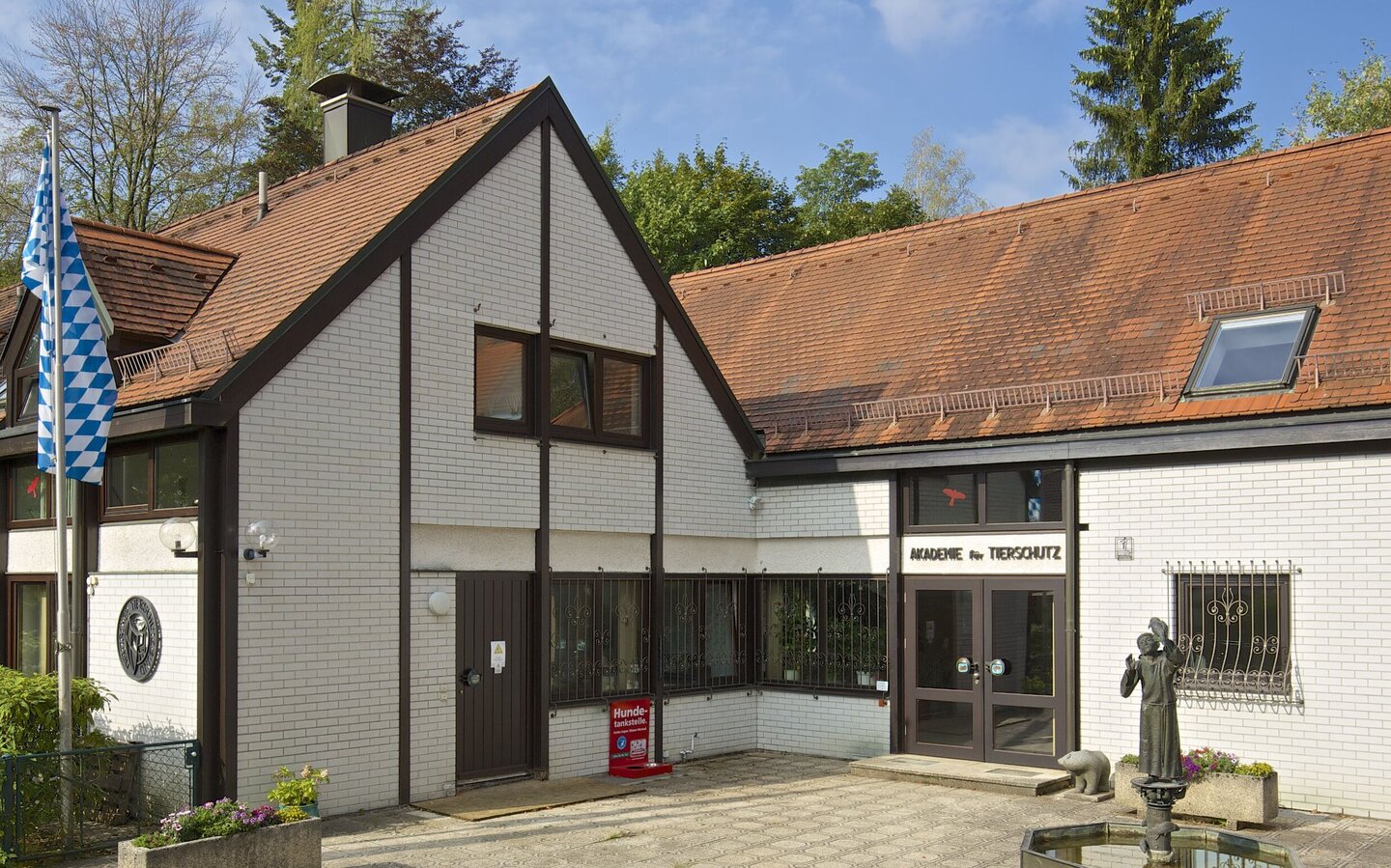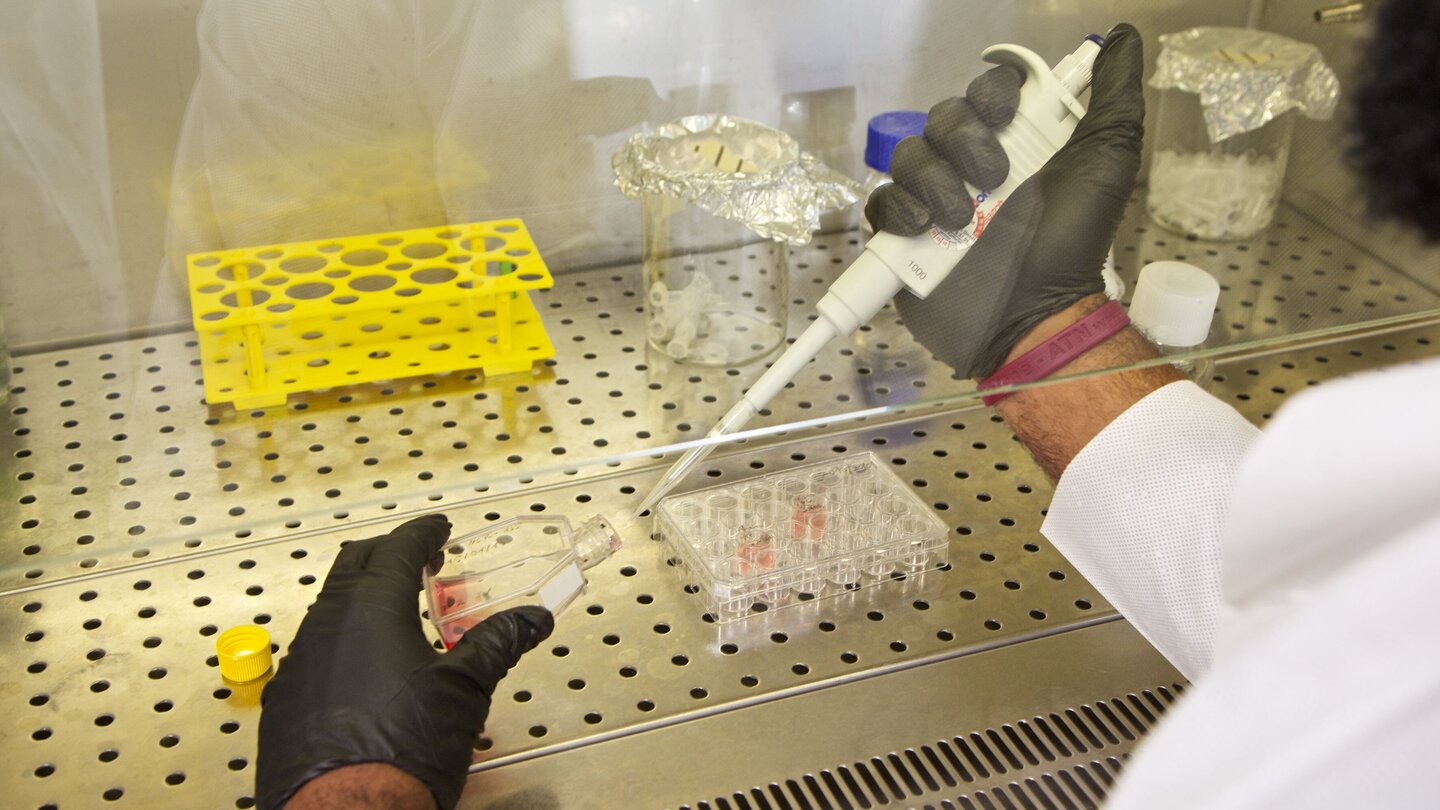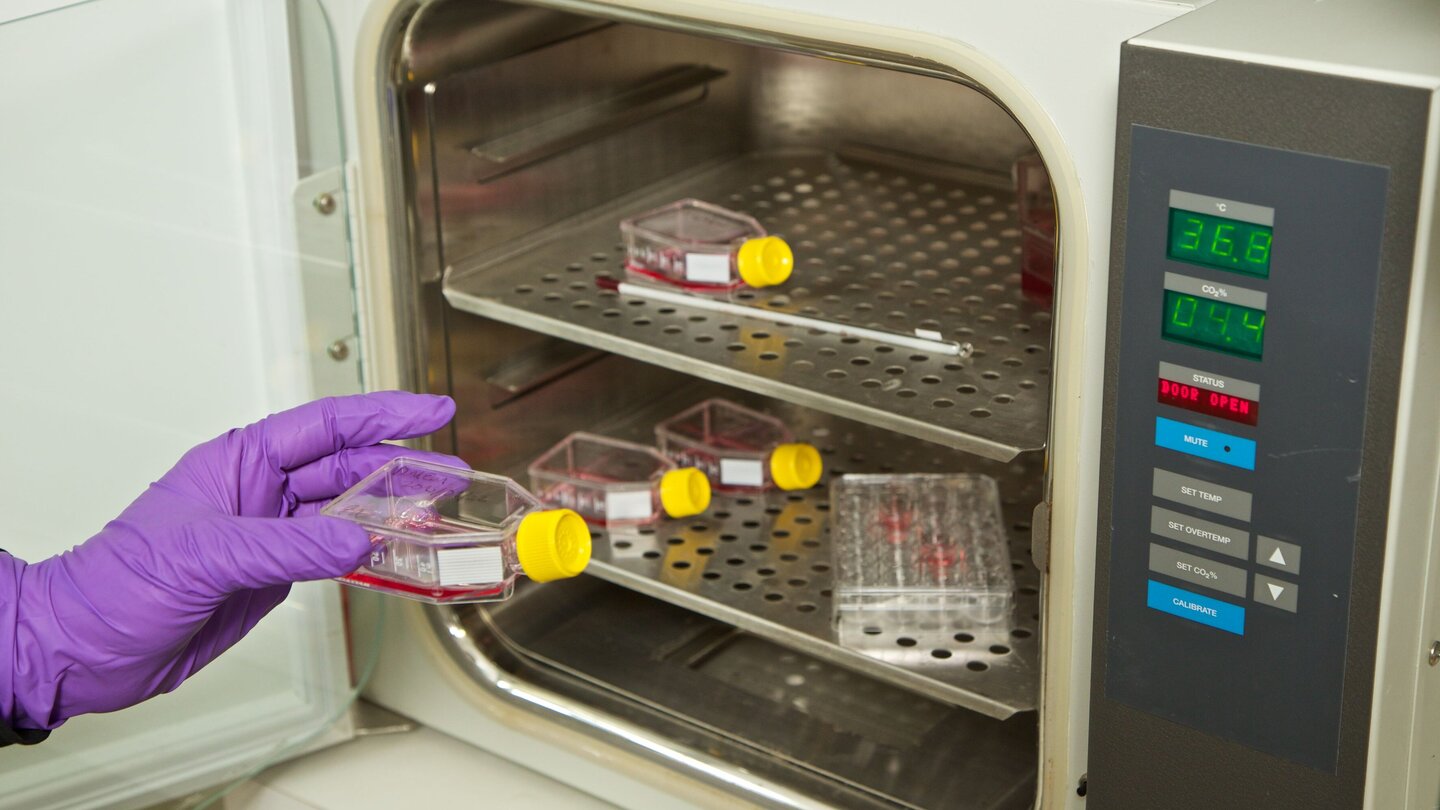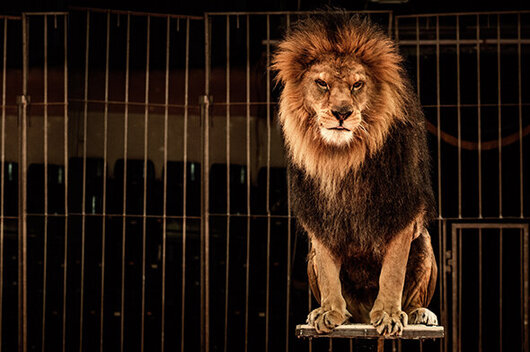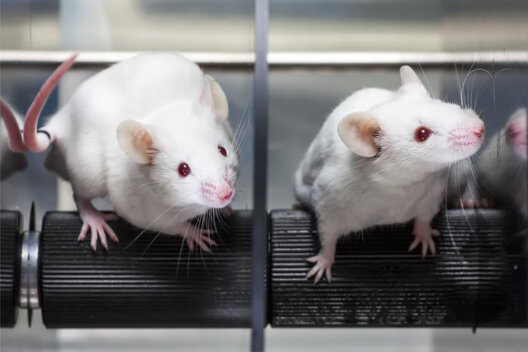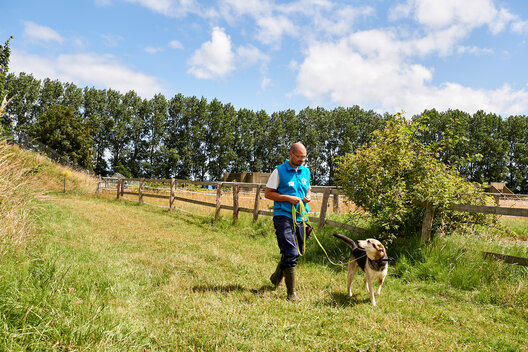Academy for Animal Welfare
The Academy for Animal Welfare in Neubiberg near Munich is the think tank of the German Animal Welfare Federation. Here, committed scientists from the fields of biology, veterinary medicine and law deal with the animal welfare problems in our society in a well-founded manner. In doing so, they lay the foundations for the direction of animal welfare work in Germany and Europe.
The Academy also enjoys an excellent reputation worldwide, particularly in the field of alternative methods research. In its own cell culture laboratory, animal-free methods are further developed in cooperation with authorities, industry and universities in order to accelerate the abolition of animal testing .
As the animal welfare knowledge of our time flows together in the Academy, it is the ideal meeting place and information center for all those interested in animal welfare. Full-time and volunteer animal welfare activists can receive further training here and, among other things, acquire the basics for the certificate of competence that is required by law for the management of an animal shelter.
Specialist lectures of the Academy for Animal Welfare
In a total of five specialist departments at the Academy for Animal Welfare, scientific experts deal with the various animal welfare topics and develop solution strategies for animal welfare problems. The legal departments and seminar administration are also based at the Academy.
The specialist department for animal-free science makes an important contribution to the abolition of animal experiments by working together with experts from industry, science and authorities in foundations, advisory boards and advisory committees. Together they discuss how new animal-free methods can be supported politically or where new research approaches need to be funded. In addition, the aim is to prevent new animal experiments, e.g. in testing regulations, and to abolish existing ones.
The specialist unit for animals in agriculture assesses specific animal welfare cases and takes appropriate measures to improve the situation for the animals concerned as quickly as possible. On the other hand, our experts also intervene in legislative processes by quickly and scientifically commenting on current issues such as animal transportation, slaughter, agricultural policy or the keeping of farm animals.
By producing detailed information material, the specialist department for pets creates the basis for advice on animal-friendly pet ownership. We pass this knowledge on to animal welfare organizations, veterinarians, animal shelter consultants and interested pet owners in lectures and seminars, for example. In addition, we intervene in specific animal welfare cases and initiate the necessary measures in individual cases to permanently eliminate the abuses.
The Wildlife Unit is dedicated to protecting animals in the wild, as well as animals in zoos, circuses and the like. When it comes to preserving biodiversity in the wild or banning or at least improving the keeping of wild animals in captivity, our wildlife experts are there to help.
As the name suggests, the topics covered by the Interdisciplinary Issues unit are wide-ranging. The work focuses on areas such as ethics, animal diseases, animal products in the clothing industry (e.g. down, wool etc.) or cruel traditions such as cockfighting or elephant riding. However, our employees are also experts in animal species such as horses and other equines, bees, ducks, geese, rabbits, sheep, goats or exotic farm animals (crocodiles, kangaroos, frogs, etc.) that are not represented in the other units.
In the event of current violations of the Animal Welfare Act , the legal department at the Academy for Animal Welfare files criminal charges if necessary. Above all, however, the legal department advises the associations of the German Animal Welfare Federation on all questions of animal welfare and association law. In addition, it also helps shape the further development of animal protection by preparing important expert opinions on legislative procedures and advocating the dissemination of animal protection law in hearings and lectures.
The seminar department organizes seminars, workshops and events where animal lovers can find out more about various topics relating to animal welfare and receive further training - both on site and online. The overarching goal is to support full-time and volunteer animal welfare activists in enabling animals to live an unharmed and species-appropriate life.
Cell culture laboratory of the Academy for Animal Welfare
The Academy for Animal Welfare demonstrates its expertise in the field of alternative methods to animal testing not only in its scientific background work. Practical experience in the development of animal-free research and testing methods is also incorporated into the wealth of knowledge of our employees. This is because the Academy for Animal Welfare has its own cell culture laboratory in which it is actively working on replacing animal testing - a unique selling point among animal welfare organizations.
Following the completion of various research projects, such as the further development of a replacement method for the eye irritation test on rabbits (Draize test), the development of a fish cell test to determine the toxicity of waste water and an animal-free cell culture method for testing gene-modifying substances, a successful cooperation with the company cellasys has been in place for over 10 years, resulting in numerous publications, congress contributions and events.

